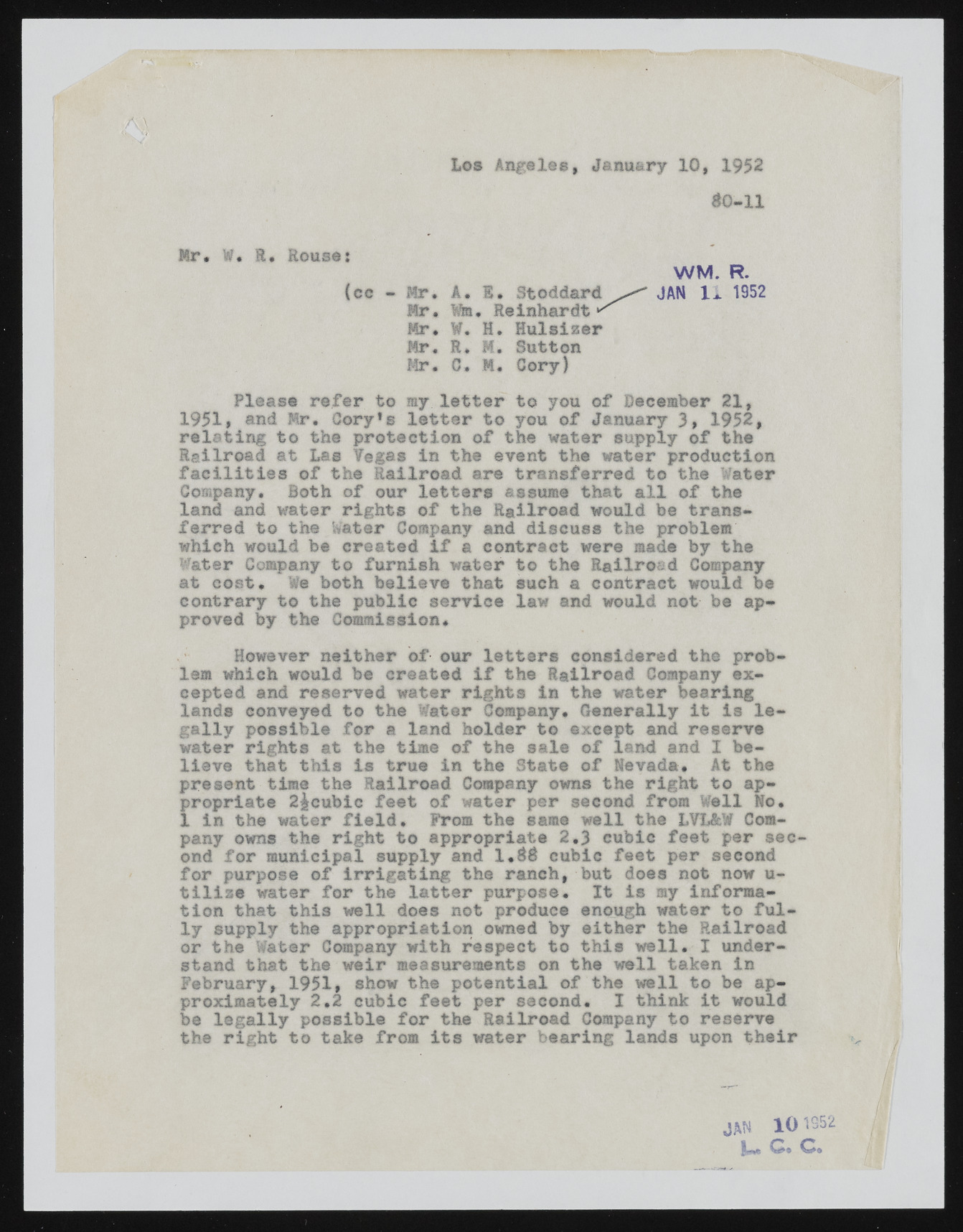Copyright & Fair-use Agreement
UNLV Special Collections provides copies of materials to facilitate private study, scholarship, or research. Material not in the public domain may be used according to fair use of copyrighted materials as defined by copyright law. Please cite us.
Please note that UNLV may not own the copyright to these materials and cannot provide permission to publish or distribute materials when UNLV is not the copyright holder. The user is solely responsible for determining the copyright status of materials and obtaining permission to use material from the copyright holder and for determining whether any permissions relating to any other rights are necessary for the intended use, and for obtaining all required permissions beyond that allowed by fair use.
Read more about our reproduction and use policy.
I agree.Information
Digital ID
Permalink
Details
Member of
More Info
Rights
Digital Provenance
Publisher
Transcription
do-xi Los Angeles, January 10, 1952 Mr. W» R. Rouse (cc - Mr. A. S. WM. R. JAN l i 1952 Mr. Wm. Reinhardt * Mr. W. H. Hulsiser Mr. R* M. Sutton Mr. C» M« Cory) Please refer to my letter to you of December 21, 1951, and Mr. Cory*s letter to you of January 3, 1952, relating to the protection of the water supply of the Railroad at Las Vegas in the event the water production facilities of the Railroad are transferred to the Water Company. Both of our letters assume that all of the land and water rights of the Railroad would be transferred to the Water Company and discuss the problem which would be created if a contract were made by the Water Company to furnish water to the Railroad Company at cost. We both believe that such a contract would be contrary to the public service law and would not be approved by the Commission* However neither of our letters considered the problem which would be created if the Railroad Company excepted and reserved water rights in the water bearing lands conveyed to the Water Company. Generally it is legally possible for a land holder to except and reserve water rights at the time of the sale of land and I believe that this is true in the State of Nevada. At the present time the Railroad Company owns the right to appropriate 2£cubic feet of water per second from Well No. i in the water field. From the same well the LVL&W Company owns the right to appropriate 2,3 cubic feet per second for municipal supply and l.SB cubic feet per second for purpose of irrigating the ranch, but does not now u-tilize water for the latter purpose. It is my information that this well does not produce enough water to fully supply the appropriation owned by either the Railroad or the Water Company with respect to this well. I understand that the weir measurements on the well taken in February, 1951, show the potential of the well to be approximately 2.2 cubic feet per second. I think it would be legally possible for the Railroad Company to reserve the right to take from its water bearing lands upon their

